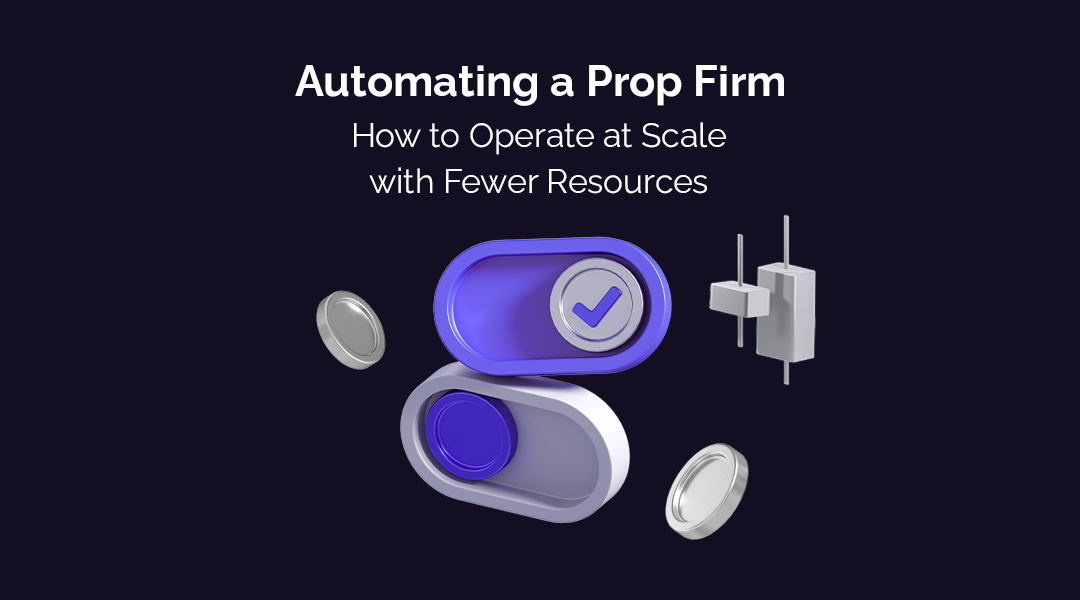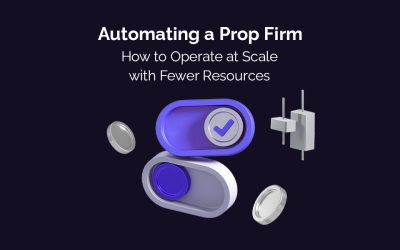If you are thinking of starting a prop trading firm, you will be in good company. Many companies have been established for this purpose over the past decade and have made a great success of it, especially when they invest in the right technology to give themselves and their traders the best chance to maximise every opportunity that comes their way.
Being well-equipped with software is one of the most important things you can do, but it is not the only one. To make a success of establishing a prop firm, you also need to be equipped with a clear business plan, sufficient capital and, crucially, an awareness of what could go wrong and how to avoid it.
Why Even Good Companies Fail
It is a reality of business that a myriad of enterprises fall by the wayside, with those that make it sometimes doing so because of a smart strategy and other times through being lucky.
Even then, companies need to keep on innovating, planning, and responding to threats to avoid falling by the wayside. Many famous firms have failed to do this, such as Nokia, General Motors, Sony and Kodak, blindsided by new technology and changes in consumer tastes. The equivalent for a prop firm would be not to invest in up-to-date software.
This is far from the only way to fail. Lessons can also be learned from cases of prop firms that didn’t make it. Understanding why this was and taking steps to prevent your firm from finding itself in the same situation could make all the difference to your ultimate success or failure.
Bad Preparation, Bad Luck, Or Bad Karma?
A prop firm called Karma was a short-lived but classic case of a firm that had a meteoric rise but, like a real meteor, swiftly burned up leaving nothing much behind. Finance Magnates reported that the firm had only been going for two months and had earned “rave reviews”, but now its obituary was being written instead.
The publication described the news as “surprising”, especially as the firm was presently investing in new technology, but founder Eshan Balapatabendi, speaking via the Discord channel, gave some hints of what had gone wrong.
He stated: “I started Karma to build something transparent and sustainable. Unfortunately there were a lot of roadblocks in the way which has caused us to be unsustainable.”
Among the issues he listed was that the initial tech he had invested in had not been delivered. Not wanting to compromise on quality, he then spent heavily on another system, eating into his cash reserves.
Following this, he acknowledged that after launching, “the risk checks were not done right”. The consequence of this was that some payments to traders were made that should not have been, referring to some who cashed in money not due to them as “cheaters” who did not get caught.
Perhaps not surprisingly, the firm ended up running short of capital, hence Mr Balapatabendi decided to close it.
In this case, the problems were clearly twofold: Firstly, you need a tech partner who is reliable and delivers on time so you are not left immediately out of pocket and behind schedule. The other is that you need to use your system to manage your traders effectively, not least to ensure nobody can use some sharp practice to cheat you out of money.

Eightcap Leaves Prop Firms Behind The Eight Ball
Another instance is a more structural problem that may affect many firms. Finance Feeds reported on the collapse of Funds For Traders, which was based at Tilburg in the Netherlands, after the decision by Australian broker Eightcap to stop supporting prop firms through the MetaTrader 4 and MetaTrader 5 platforms the firm relied on.
As Finance Feeds noted, this sudden move by Eightcap has also left many other prop firms scrambling to find alternative support. That suggests Funds For Traders has been exceedingly unlucky, but the fact that other firms have not shut down – at least yet – might suggest some have at least devised some form of contingency strategy for such a situation.
The article also noted that some prop firms have been looking closely at the increasing reluctance of some brokers to support third-party clients, which suggests that this model may be discontinued before long. If you are starting a prop firm now, therefore, you may want to look carefully at what sort of supporting structures are in place.
None of this means that prop firms are at greater risk than companies in other areas. But what the above lessons show is that problems setting up and running a firm can be catastrophic while changing circumstances around you can also pose a threat. To succeed in this business, like any other, you have to be prepared for all sorts of eventualities.









